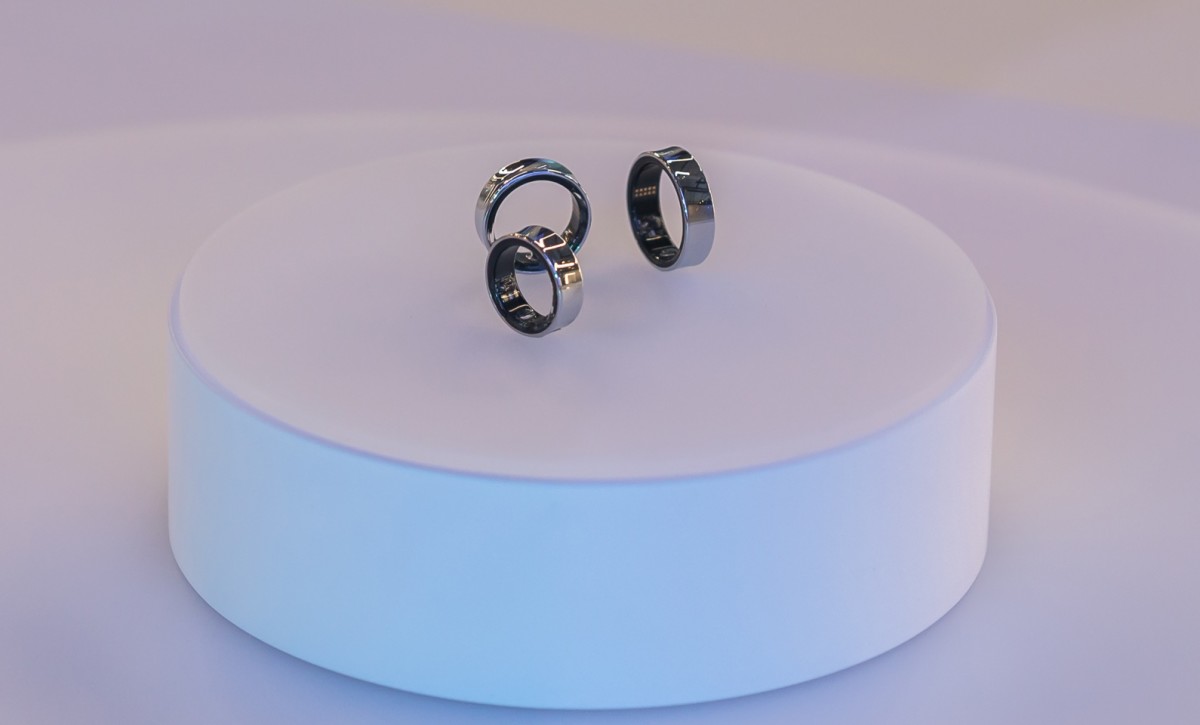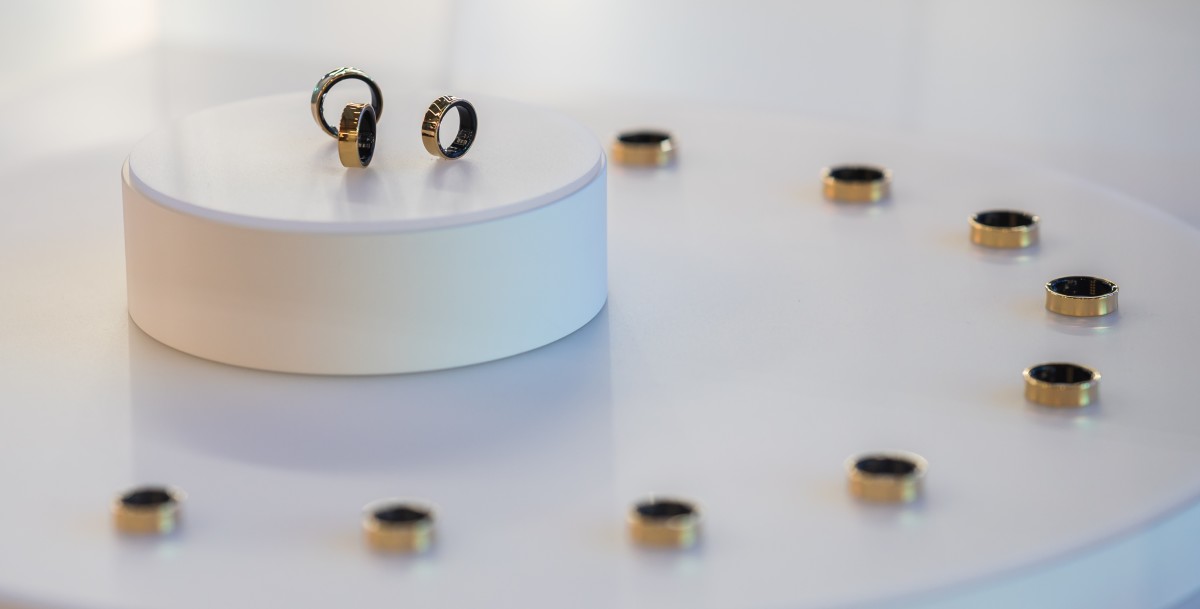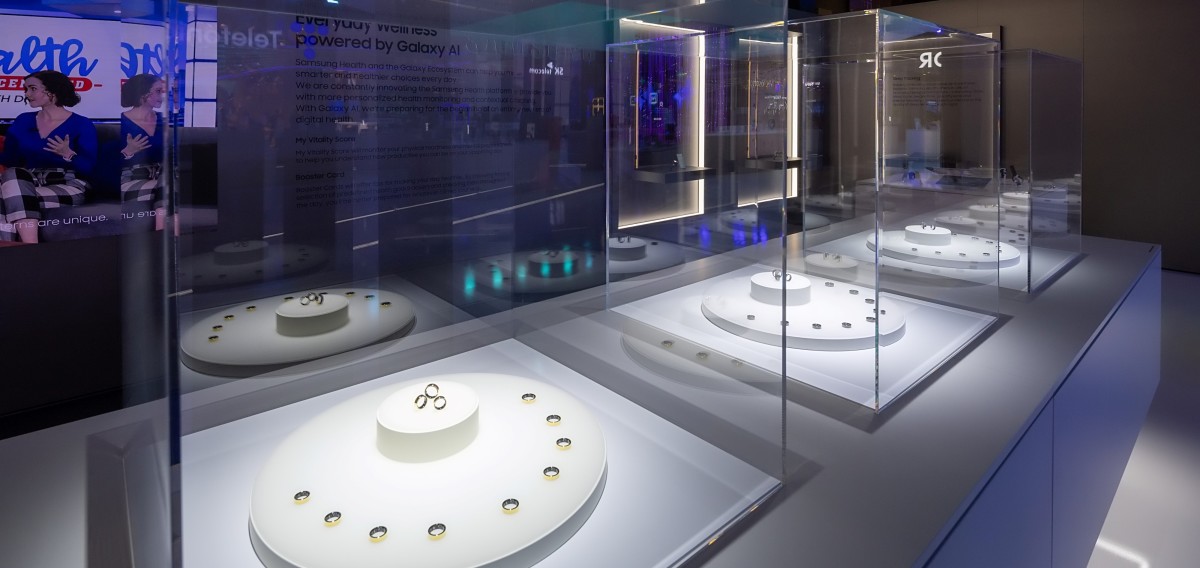
Samsung might have only teased the Galaxy Ring in January at its first Galaxy Unpacked event of 2024, but that small portion of the event has driven a lot of consumer excitement. Sure, Samsung is already in the wearable market with the Galaxy Watch lineup, but the Ring is a new form factor for the technology giant and could disrupt the market.
At Mobile World Congress 2024 in Barcelona on Feb. 26, Samsung (SSNLF) shared more about the Galaxy Ring and publicly displayed it for the first time. Three separate cases are in Samsung’s booth, showing off the various sizes of the Galaxy Ring and its three finishes: silver, gold, and black. Each ring was shown with nine sizes laid flat, with three Galaxy Rings standing upright in the middle, giving us another look at the sensor stack.
Additionally, Dr. Hon Pak, Samsung’s VP of Digital Health, shared some details about the forthcoming wearables and Samsung’s overall vision for health, writing that the Galaxy Ring will be the “smallest form for comfortable 24/7 wear." Hopefully, he's hinting that it will boast multiple-day battery life and robust tracking.

Samsung
Dr. Pak also shared that two new features are arriving with the Galaxy Ring and the Galaxy Watch 6. A new Vitality Score will be available alongside other metrics, but this one aims to provide an intelligent and actionable wellness report based on data and an algorithm. Booster Cards are similar but delivered in real-time via notifications to a Galaxy Phone as actionable tips based on data like sleep, steps, or activity.
We know that the Galaxy Ring will offer step, activity, and sleep tracking, and speaking to The Verge, Dr. Pak shared that for the latter, it uses heart rate, respiratory data, and movement to deliver comprehensive data. He also confirmed that Cycle Tracking on the Galaxy Watch 6, through a partnership with Natural Cycles, will also be on the Galaxy Ring. That levels up the tracking and functionality of Samsung’s smallest wearable device and puts it on par with the Oura Ring.

Samsung
One significant difference between Oura and Samsung would be the subscription cost. Samsung doesn’t charge for any of its health or fitness features aside from the initial cost of the device, and if that holds with the Galaxy Ring, that could give it an edge. Right now, the Oura Ring starts at $299, and you need to pair it with a $5.99 monthly membership to get a complete experience.
Dr. Pak wrote, “Through the power of intelligence, partnerships and advanced technology, we’re helping more people better understand themselves and make the small changes that have a big impact, every day.” This shows that Samsung is taking a wide-spread, full-circle approach that already involves connections with other devices and third parties. Still, I’d expect that to grow as Samsung pushes ambient computing into digital health.
Still, Samsung isn’t sharing pricing, materials, all the features, or an exact time frame for the Galaxy Ring’s launch. It’s clear the company is swiftly prepping it and showing it off to more folks behind closed doors and in locked, clear cases on the show floor at MWC, building up more hype.
Either route, when the Galaxy Ring does arrive, it should be a very capable smart ring with excellent health tracking and actionable data thanks to Samsung’s health platform.
Related: Veteran fund manager picks favorite stocks for 2024

Samsung







